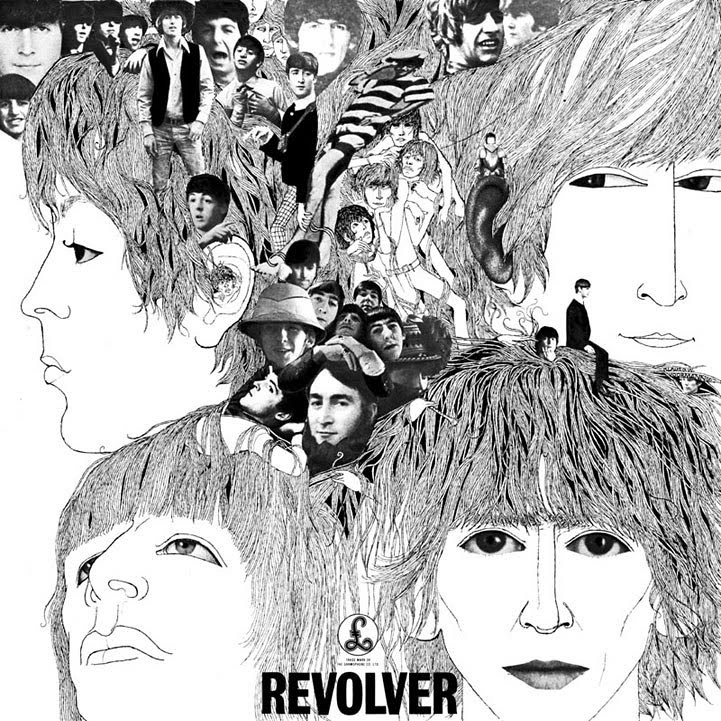Revolver Album Review
May 13, 2023
In 1966 The Beatles released one of the most important albums ever that was different from everything before it. Up to 1965, the Beatles’ first five albums were similar in structure with both catchy original songs like “I Wanna Hold Your Hand,” “A Hard Day’s Night” and covers. However, during the recording sessions for their fifth album, Help, something changed
In Aug. of 1964, Bob Dylan helped foster major changes by introducing the Beatles to marijuana. This, combined with more experimentation, ceasing regular touring and developing radio-only songs not written for live audiences, influenced huge changes that would change music forever.
On Dec. 3, 1965, the Beatles ventured into folk and other music with Rubber Soul. This album saw a departure from their previous works, with music that featured new instruments and the band taking risks (such as the use of sitar on “Norwegian Wood”). Critics were generally welcome to the change, and the Beatles were about to become the most revolutionary and influential bands of all time.
After months of experimenting in the studio, the band released Revolver on Aug. 5, 1966. The album, in my opinion, was a masterpiece and it laid the groundwork for other more important releases like “Sgt. Pepper’s Lonely Hearts Club Band. The band members gave 100% above and beyond. This album has had such a cultural impact that RollingStone magazine has it ranked # 11 on the 500 greatest albums of all time. In this review, I am going to break apart the album and give an in-depth review.
The album begins with a countdown before the music lets George Harrison´s composition open a Beatles album for the first time. “Taxman” was written to protest the British Government taking over 90% of the band’s income. The song sure does speak that with the deep lyrics that reflect Harrison´s frustration by “declar[ing] the pennies on [his] eyes.” The guitar solo in between verses, performed by bassist Paul McCartney, is one of the most jam-packed solos, and I wish it was just a little longer to flush out more of the guitar riff and create a longer solo.
While “Eleanor Rigby,” by McCartney, is one of the best songs on the album with deep meanings about loneliness and being remembered, the song that follows it has a more relatable deeper meaning.
“I’m Only Sleeping,” written by Lennon, reflects his struggles with depression, drug addiction and getting out of bed in the morning. The somber tone combined with acoustics and reversed electric guitar solos turn this into a very creative and underrated Beatles song. I find this song relatable as I, and many others, have trouble getting out of bed in the morning. Lennon’s other contributions to the album would follow a similar dark tone with influences from drugs and mental health like “She Said She Said,” “Doctor Robert” and “Rain” (released as a non-album single).
The rest of side one follows with more gems, such as McCartney’s “Here There and Everywhere,” which is one of the few McCartney songs Lennon praised, and Lennon’s somber “She Said She Said.” However, the album also incorporates a song that, in my opinion, was made to get children into the Beatles. McCartney’s “Yellow Submarine” (Sung by Beatles Drummer Ringo Starr) uses catchy lyrics and images that appeal to a child’s imagination like living in a submarine.
Side two, meanwhile, is both catchy and experimental with songs like McCartney’s “And Your Bird Can Sing,” “Good Day Sunshine” and the penultimate “Got to Get You into My Life.” Meanwhile, Lennon’s deep songs about substance abuse continue with “Doctor Robert” and Harrison’s LSD inspired song about the “Avalanche of thoughts” a person has while taking drugs: “I want to Tell You.”
Another underrated song is “For No One” written by McCartney. The song tells the story of love, abandonment and the heartbreak that occurs at the end of a relationship. This song demonstrates that when McCartney wanted to write somber songs he could. The French Horn segments and solo’s tie this deep song together.
The most experimental track on the album (and my favorite on side two) is “Tomorrow Never Knows” written by Lennon. It was the first track recorded for the album, and the lyrics can be interpreted in many different ways. Engineer Geoff Emerick was able to throw Lennon’s voice around the room in the background of the song while Lennon sang about turning off our minds to float downstream. Solos in the song are created by mixing multiple instruments at once and this, along with attempts to mimic Indian music, turned this song into the most experimental and psychedelic Beatles’ songs ever.
Pretty much the whole album has no bad songs or filler, as even though songs like “Doctor Robert” and “Good Day Sunshine” aren’t as masterful as songs like “Eleanor Rigby,” they are still very innovative, and I never skip the songs when listening to the album.
In conclusion, Revolver is one of the most revolutionary, experimental and best albums to ever be recorded. Its recording and engineering by Emerick and producer George Martin changed music forever. It simply did everything that their next (more famous) album Sgt. Pepper’s Lonely Hearts Club Band did but first, and mostly, better. I wholeheartedly recommend anyone to listen to this album all the way.

